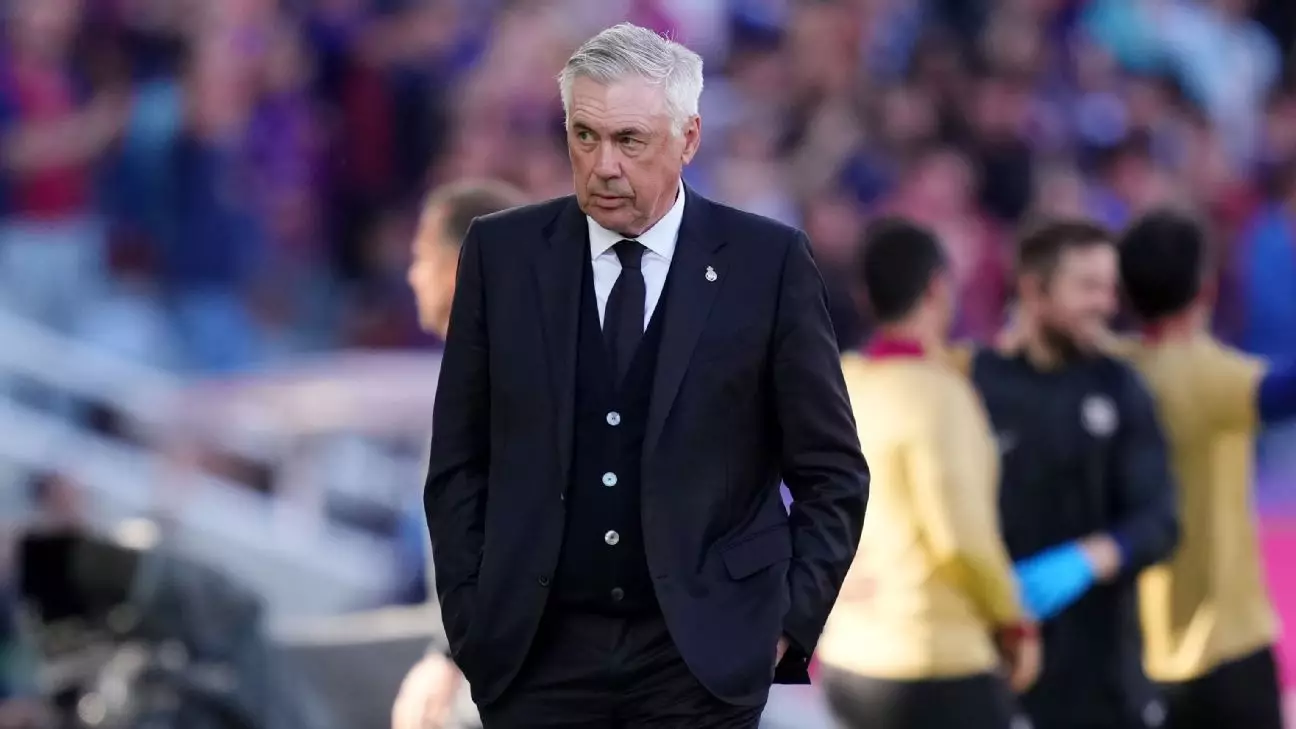Carlo Ancelotti’s announcement regarding his departure from Real Madrid and subsequent appointment as Brazil’s head coach encapsulates a pivotal moment in his illustrious career. Far from a melodramatic exit, Ancelotti’s demeanor at the news conference revealed a composed acceptance of the cyclical nature of football management. He calls for “no need for drama,” a phrase that highlights his understanding that change is integral in professional sports, especially at the legendary Santiago Bernabéu.
Ancelotti’s transparency regarding his intentions provides an interesting narrative on the modern football culture, where public persona and media engagement often overshadow the more nuanced realities of coaching. While there may be disappointment among fans due to a less-than-stellar season—culminating in a Copa del Rey defeat and elimination from the Champions League—it’s crucial to view Ancelotti’s transition not as a defeat but as an acknowledgment of evolving dynamics within one of the world’s most iconic football clubs.
The Respect for Madrid and its Legacy
Ancelotti’s insistence on focusing his energy and respect on his remaining time with Madrid speaks volumes about his professionalism. His commitment to ending this developmental chapter on a positive note underscores a profound respect for the legacy of both the club and its supporters. This decision, made in coordination with the club, reflects a mutual understanding that perhaps fresh ideas are necessary to stimulate the team moving forward.
The ramifications of his departure extend well beyond statistics and trophy counts. The club recognizes the necessity of new leadership to reignite its ambitions, especially after a season marred by inconsistency. Ancelotti himself acknowledges that he could not remain at the helm indefinitely; leadership in football, like life, demands adaptation and, at times, transformation.
Taking on New Challenges with Brazil
The upcoming challenge with the Brazilian national team introduces an exciting chapter in Ancelotti’s career. It’s a position laden with expectations, yet it also allows him to explore his coaching prowess on an international stage. The Brazilian Football Confederation (CBF) has long considered Ancelotti a prime candidate, and his subsequent acceptance of the role signifies a new opportunity to instill his football philosophy within a squad that is rich in talent and tradition.
Interestingly, Ancelotti’s appointment as Brazil’s coach poses the intriguing question: How will this experienced tactician adapt his management style to fit a team known for its creativity and flamboyant flair? Brazil’s football identity is profoundly different from that of Real Madrid—with its own distinct pressures and expectations. Here lies a chance for Ancelotti to demonstrate his depth as a coach, molding tactical discipline with Brazil’s naturally free-spirited football culture.
Expectations and Dynamics in Transition
With Ancelotti’s statement regarding his replacement, Xabi Alonso, emerging as the frontrunner paints an optimistic future for Los Blancos. This anticipated succession plan, rooted in a blend of nostalgia and new direction, may mark a significant pivot for Real Madrid. Alonso, a former player under Ancelotti’s guidance, embodies the tactical intelligence that the club needs to rebuild. The transition of leadership, while always challenging, is made smoother by Alonso’s familiarity with the club’s ethos and culture.
Meanwhile, the narrative of Ancelotti stepping away is also a reflection of ongoing tensions and pressures within football. The blurred lines between managerial performance and club expectations can often culminate in rapid turnovers. Conclusively, it stirs discussions regarding how clubs manage their reputations against the winds of change. It begs the question—how much should results influence the relationship between a coach and a club?
It is crucial to convey that as we watch Ancelotti leave and Alonso potentially step in, the evolution of teams like Real Madrid encapsulates a broader story about resilience and renewal in football. Ancelotti’s calm resignation from one of football’s most high-pressure roles serves as a poignant reminder that change can beget new successes. Rather than lament the losses of an underwhelming year, both the coach and the club must embrace this moment of transition with hope and aspiration. In this ever-changing landscape, it’s the adaptability and the willingness to embrace fresh perspectives that will define the next era of football for both Ancelotti and Real Madrid.


Leave a Reply